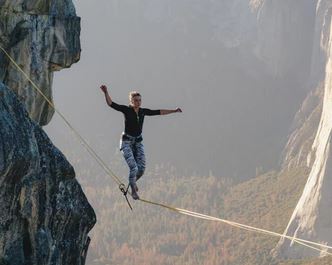Question: Where is the middle ground between “stop caring about what others think” and “stop being so selfish”?
 foto de Leio McLaren
foto de Leio McLarenRespuesta: Tanto la preocupación por lo que piensan los demás como el egoísmo forman parte de nuestra constitución biológica, así como de nuestra educación. Algunas personas nacen con más empatía y conciencia social, otras con menos. Creo que también tenemos un sentido innato del equilibrio entre nuestras necesidades y las de los demás. Sin embargo, unos padres malsanos y manipuladores pueden hacer que los niños ignoren, olviden y no crean en ese instinto natural.
¿Por qué nos importa lo que piensen los demás?
Caring for others’ opinions—even when those opinions are quite misguided—was crucial for prospering within a human community for hundreds of thousands of years. People who cooperated with others not only ensured their own survival; it also helped the survival and well-being of their offspring. Sometimes it was a matter of life and death—through most of human history, a person who was ostracized from a community could easily die. Only a few centuries ago, just being slightly strange or stepping on the wrong person’s toe could result in being burned at the stake. That’s a pretty strong motivation for caring about what others think!
On the other hand, selfishness could also result in a person gaining an advantage over others, ensuring their own and their children’s survival and prosperity. That’s why, as a species, we never lost it, despite the pressure to cooperate. Obviously, selfishness worked best for those who were stronger and more aggressive than the rest.
Encontrar el equilibrio
But let’s focus on a practical answer: your body will usually send you signals if you are out of balance in either direction. However, it can also send you signals of fear and confusion if you were punished or manipulated as a child to deny your own needs in favor of others. Some parents can instill fear in their children by often expressing their own fear of what others think. Therefore, it’s very important to observe yourself in order to learn to distinguish between a healthy warning of lack of balance in your body and unhealthy emotions that are the result of childhood programming.
If you find this difficult early on, this question might be good guidance: Is what I’m doing bringing more trouble to others than it is important to me?
For example, if you are running to catch a plane, it’s not selfish to cause minor discomfort to other people by asking them to let you jump the queue. If you are exhausted or sick, it’s not selfish to take a seat in public transport, even if there are older people around, as long as none of them seem to be in worse condition than you.
Por otro lado, si pones la música muy alta en mitad de la noche, estás causando molestias importantes e incluso posibles problemas de salud a muchas personas, mientras que poner la música menos alta o utilizar auriculares no disminuiría significativamente tu disfrute. Si bloqueas la acera para charlar con un amigo, estás frustrando a mucha gente mientras que a ti no te cuesta nada hacerte a un lado.
There are also plenty of situations in which all people involved might have strong needs and desires, in which case finding an answer is not so straightforward. But as long as you are honestly looking for balance, you don’t have to worry that you are being selfish.
If you’re often troubled by what others think, remember that it may be the result of excessive social control over many generations. On the other hand, if others tell you that you’re selfish, it might be useful to sometimes put yourself in their shoes and see yourself from their perspective.
Siga leyendo:
7 Steps To Get Out Of Your Comfort Zone
Cómo enseñar a los niños a usar su intuición

